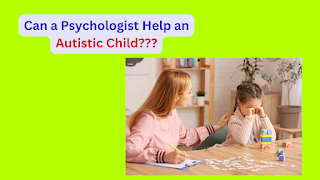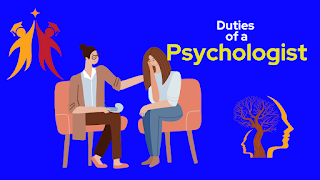What is Play Therapy in Psychology?
What Do You Mean by “Play Therapy” in Psychology?
Play Therapy in Psychology is a therapeutic approach designed to help children, typically aged 3 to 12, express their thoughts, feelings, and emotions through play. It is based on the belief that children often have difficulty verbalizing their inner experiences, and play provides them with a natural and familiar means of communication. Play Therapy is conducted by trained mental health professionals who observe and engage with the child during play sessions to gain insight into their psychological and emotional world.
Play Therapy in Psychology is rooted in several fundamental principles. The following sections will explain all in brief:
Fundamental Principles of Play Therapy
i) The Mode of Play Therapy
Firstly, it recognizes that play is a primary mode of communication and self-expression for children. Through various types of play, such as art, sand, or imaginative play, children can convey their fears, anxieties, and hopes without direct conversation. Play Therapy is crucial in providing a safe and non-threatening environment for children to express themselves.
ii) The Involvement of the Therapist with the Child
Furthermore, Play Therapy emphasizes the importance of the therapeutic relationship between the child and the therapist. A skilled therapist creates a secure and accepting space where the child feels understood and supported, fostering trust and a sense of safety. Through this relationship, the child becomes more comfortable sharing their emotions and experiences, which might remain hidden.
iii) Different Forms of Play Therapy
Play Therapy can take many forms, and the choice of materials and activities depends on the child's age, needs, and therapeutic goals. For example, a child who has experienced trauma might engage in dramatic play with action figures to recreate and process the traumatic event. Another child dealing with separation anxiety might use art materials to draw their feelings of fear and sadness.
iv) What the Therapy is Addressed To?
Play Therapy can also be adapted to address specific issues. In cases of behavioral problems or social difficulties, therapists may use play to teach children appropriate coping skills, problem-solving strategies, or conflict-resolution techniques. In this way, Play Therapy helps children develop valuable life skills while also addressing their emotional challenges.
Related Posts
 |
Can a Psychologist Help a Child with Autism??? |
Conclusion
Play Therapy is not limited to individual sessions. Group Play Therapy allows children to interact with peers while working on their emotional growth, fostering social skills, and building relationships in a supportive environment.
In conclusion, Play Therapy in Psychology is a valuable therapeutic approach for children. It recognizes the significance of play as a means of self-expression and leverages the therapeutic relationship to provide children with the support they need. Whether addressing trauma, behavioral issues, or emotional struggles, Play Therapy offers a diverse range of techniques and strategies to help children navigate the complex terrain of their inner world. Ultimately, Play Therapy helps children to grow emotionally and develop essential life skills while finding solace in the language of play.
Related Posts
What are the Duties of a Psychologist?



